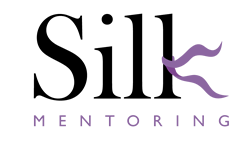Look around you while you ride the train or bus – who is really “seeing” you?
In Maslow’s Hierarchy of Needs, our social relationships come immediately after our physiological and safety needs are met. Technology has multiplied the way we interact with others. We have access to many more individuals than previous generations and can interact with people who live in various parts of the world.
Despite all this, and despite the number of Facebook friends, your “likes”, your twitter followers, your LinkedIn network, or your Instagram fans, do you still feel disconnected and alone? Do you feel that despite all the things you put out there about yourself, no one really hears or knows you, that there is something missing in these relations and interactions? Maybe that something is authenticity!
Ben Halpert talks about the kind of self-portrait we create online which is influenced by what we think our ideal self should be and how we think others will view us. Halpert believes that our online personas tend to be inauthentic. His encouragement: “Be you. By representing your individual and honest self, you will not only be more authentic, you will be expressing some self-love for your uniqueness. You won’t be holding yourself up to anyone else’s standards and you can let the pressure of social media perfection go.”
Bob Deutsch says something similar to Halpert and believes that social media has become dangerously inauthentic…it’s hard to know whom, what or where to trust.
EE Cummings finally states that “It takes courage to grow up and become who you really are.”
So what is Authenticity?
SILKMentoring defines Authenticity as the sharing of our genuine selves with others which gives us and them the space and the belief to do the same. Authenticity is about genuineness, originality. It is about reliability and trueness, about integrity, trustworthiness, truthfulness, transparency and vulnerability. These qualities reinforce each other, and when one or several are lacking, our “authentic self” diminishes with it.
To be authentic, you must be trustworthy and reliable. A trustworthy person’s word is their bond.
To be authentic means you aren’t afraid to be vulnerable. Showing your “true face” to others takes courage, and while some people might object to the true you, they will still know that you are being authentic, which is where transparency comes in.
Transparency is being forthright in your thoughts, feelings and actions. It is showing others that you have no hidden agendas and openly accepting accountability for the choices you make and for the impact you have on others. A transparent person is aware he or she influences others, and impacting others transparently shows enormous personal strength.
Such strength is impossible without integrity, which implies always choosing what is right and true over what is not, even at a personal loss.
Having integrity is fundamental to being authentic.
In sum, being authentic is about balancing a complex set of personal virtues. It is not about your rants on social media, where you let it all loose with total disregard for whether it is right or wrong and whether it is received positively or negatively.
Why is Authenticity important?
Authenticity is important because authentic interactions generate personal emotional and spiritual well-being. Inauthentic interaction might bring you all sorts of superficial rewards (recognition, status, admiration, popularity, you name it), but they will ultimately leave you empty.
Authenticity can be cultivated at a distance, or online, but it is best cultivated in personal interactions. The reason is simple – human beings are social beings. They need to engage others with all their senses to feel truly connected. They need to see, hear, smell and sometimes touch. They need to observe up close, unfiltered and they need others to do the same. Personal interaction and relations are indispensable for the development of the authentic self, because there are no filter, no layer, and no veils.
This is why SILKMentoring believes in and relies on a very personal, personalize, high touch and interaction intensive mentoring approach. We support your authenticity by challenging our own….
Some tips to practice your authenticity
- Start by having a face to face encounter with someone. Pick someone you have meant to talk to for a while, but who you have been putting off for some time.
- Ask the person questions – relevant, personal ones (don’t talk about the weather, no one really cares, or can do anything about it anyway!)
- Share some of your challenges and struggles. Giving others a chance to empathize is a sign of authenticity.
- It helps to choose your environment for the face to face carefully. A café is public, lots of eyes and ears will prevent many people from opening up and addressing truly important, authentic topics. Invite people to your home. Your home is your castle, people know that. Once people feel comfortable coming to your home, and you feel comfortable having them, your relationships will change.
- Give compliments – genuine ones – when people recognize themselves in your compliments, they know you are seeing and hearing them and they will drop their barriers.
Authenticity takes effort, it’s a two way road, to be authentic, you need to allow others to be authentic also, but once you turn that corner you will begin to see yourself and others with different eyes. It’s worth it.
